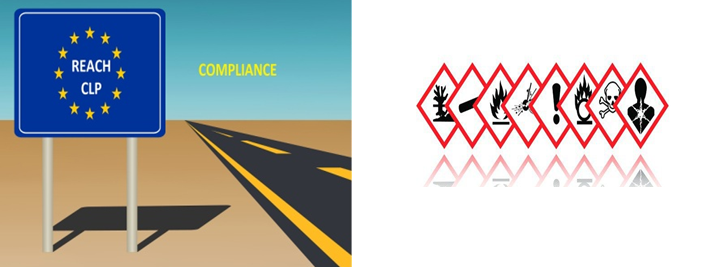WHAT ARE EDCs?
Endocrine Disrupting Chemicals (also referred to as hormone disruptors or EDCs) are synthetic chemicals that are not produced by the human body and that disrupt the normal functioning of humans and animals.
It is suspected that EDCs can cause decreased fertility, hormone-related cancers, behavioral changes, adverse effects on the immune systems, and metabolic disorders. Such adverse effects could be mediated by mimicking the body’s own hormones or interfere with hormone production, secretion, degradation or transport of hormones in the body.
EDCs are suspected of being capable of acting even at very low doses and sensitive windows of exposure appear to be during critical periods of development (for instance, fetal development and puberty).
The harmful impact that EDCs have on health and the environment has been known for more than 20 years.
On 20 September 2022 the European Commission published a Draft delegated regulation introducing new hazard classes to the system established in Regulation (EC) 1272/2008, on the classification, labelling and packaging of substances and mixtures (the CLP Regulation).
The Draft regulation would introduce the following new hazard classes and categories:
| Endocrine disruptors for human health, category 1 (known or presumed) and category 2 (suspected) |
| Endocrine disruptors for the environment, category 1 (known or presumed) and category2 (suspected) |
| Persistent, Bio-accumulative and Toxic (PBT) or very Persistent, very Bio-accumulative (vPvB) substances |
| Persistent, Mobile and Toxic (PMT) or very Persistent, very Mobile (vPvM) substances |
The regulation includes the classification criteria for substances and mixtures, as well as the relevant labelling elements, including new hazard statements. For PBT/vPvB substances, common criteria are established for persistence and bioaccumulation. However, given their difference in toxicity, they remain different categories. The same situation applies to PMT/vPvM substances.
The new classification and labelling requirements would apply to substances 18 months after the regulation’s entry into force. In the case of mixtures, the transitional period would be 36 months.
However, the draft establishes grace periods for substances and mixtures labelled before the entry into force and placed on the market before the end of the transitional period. The old classifications may continue to apply for 42 months for substances and 60 months for mixtures.
While still a draft, the introduction of new hazard classes and categories in the CLP Regulation is a key development in chemicals management worldwide. As many countries around the world seek to adopt both the GHS and REACH-like regulations, this development opens space for divergence between the global and EU frameworks. Additionally, it is related to the upcoming revision of EU Regulation 1907/2006 (the REACH Regulation), as the Chemicals Strategy for Sustainability pointed to the categorization of endocrine disruptors, PMT and vPvM substances as substances of very high concern (SVHC) under REACH.
In addition to these developments through delegated regulations, further changes to chemicals management in Europe are expected in the coming months, when the European Commission proposes amendments to the REACH and CLP Regulations themselves.
Once adopted by the Commission, delegated acts enter into force automatically unless the European Parliament or the Council of the EU explicitly oppose them. The current draft is open for public comments until October 18, 2022.
Reference:
The European Union (EU) has agreed to offer Indian pharmaceutical and medical devices companies preferential access to EU market, along with cutting tariffs on 97.5 percent of chemical products to zero.
As we approach the close of this year, we at ExSyn would like to extend our heartfelt gratitude for your trust, collaboration, and continued support. Your confidence in our products and services has been the driving force behind our growth and success.
The U.S. Food and Drug Administration (FDA) today announced significant action to make it faster and less costly to develop biosimilar medicines, which are lower-cost “generic” alternatives to biologic drugs that treat serious and chronic diseases.
Products containing titanium dioxide in the EU are no longer required to carry warnings about cancer risk, after the European Chemicals Agency (Echa) revoked its classification as a suspected carcinogen. The move follows a June 2025 decision by the Court of Justice of the European Union and means that safety data sheets, labelling and packaging requirements for titanium dioxide have been relaxed across industries including paints, pharmaceuticals, cosmetics and food.
The economic impact of biosimilars on the Australian health care system is now clearer, with data revealing their role in reducing market expenditure and driving price competition.
The Chinese Golden Week impacts Ocean Freight Shippers for two main reasons:
Donald Trump’s tariffs of 50% have come into force on most US imports from India. India’s giant generic pharmaceuticals sector and its electronics and petroleum products are exempt from the tariffs. Aluminium, steel and copper remain at 25%, but job-heavy sectors such as textiles, jewellery, seafood and leather are squarely in the line of fire.
The European Chemicals Agency (ECHA) has published the updated proposal to restrict per- and polyfluoroalkyl substances (PFAS) under the EU’s chemicals regulation, REACH. The update has been prepared by the authorities from Denmark, Germany, the Netherlands, Norway and Sweden, who submitted the initial proposal in January 2023.
Most chemicals exported from the 27 member countries of the European Union into the US will be subject to a 15% tariff on top of their selling prices under an agreement signed on July 27 between the US and the European Commission.
